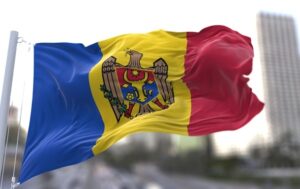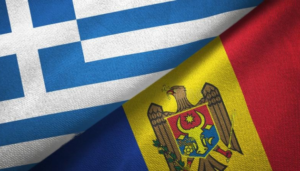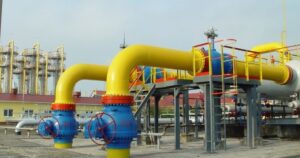
In 2025, Moldova was heavily dependent on imports of milk and dairy products, with Ukraine supplying more than two-thirds of the product to the local market, according to the Moldovan publication rupor.md, citing data from the republic’s Customs Service.
According to Moldovan customs, in January–November 2025, Moldova imported 26.7 thousand tons of milk and dairy products worth a total of $23.4 million. The largest volume of raw milk as a raw material came from Ukraine — 16.8 thousand tons (66.1% of total imports). Romania, Poland, and Belarus are also among the leaders in milk raw material supplies.
According to customs data, Moldova also imported finished dairy products, including sour cream and milk mixtures.
In the segment of full-fat sour cream (over 10%), Ukraine’s share was even higher — over 80% of imports. In addition, Ukraine led in the supply of milk and sour cream with added sweeteners, accounting for almost 68% of imports.
Ukraine significantly outperformed its competitors from Romania, Poland, and Belarus in the supply of dairy products.
“Moldova’s dependence on milk imports from Ukraine is due to close trade ties between the countries and geographical proximity, which significantly reduces logistics costs for importers,” Moldovan experts explained.

At the Rebuilding Ukraine: Security, Opportunities, Investments forum in Bucharest, during one of the panel discussions, representatives of Romania, the Republic of Moldova, and Ukraine announced their intention to deepen regional cooperation in infrastructure within the “strategic transport triangle” to support Ukraine’s reconstruction and strengthen the region’s resilience.
The panel was moderated by George Scutaru, CEO of the New Strategy Center think tank. Participants included Vladimir Bolea, Deputy Prime Minister and Minister of Infrastructure and Regional Development of the Republic of Moldova; Mihai Iurca, Special Envoy for the Reconstruction of Ukraine and Head of the Office of the Prime Minister of Romania; First Deputy Chair of the Verkhovna Rada Committee on Transport and Infrastructure Yulia Sirko, State Secretary of the Ministry of Infrastructure of Romania Ionel Scrieşteanu, Deputy Minister of Communities, Territories and Infrastructure of Ukraine Serhiy Derkach (via videoconference), and CEO of Leviatan Group Cătălin Podaru.
The discussion focused on the strategic importance of regionalizing infrastructure projects between the three countries and developing logistics corridors that ensure not only economic and demographic mobility, but also military mobility in the context of the ongoing war. The participants emphasized that transport and energy connectivity is seen as a tool for coordinating government policies, as well as a platform for involving the private sector in the reconstruction of Ukraine.
“Logistics is becoming a key element of security and development: from ports and railways to border infrastructure, all of this must function as a single network between Romania, Moldova, and Ukraine,” Skutaru noted during the discussion. He stressed that coordinating investments and projects within the “strategic transport triangle” is a necessary condition for increasing the capacity of corridors used for trade, transit, and military aid.
Representatives of the Ukrainian and Moldovan sides stressed that the reconstruction of Ukraine is impossible without the active participation of private business and the involvement of international companies in joint projects. “Ukraine is open to partnership, and we need both financial resources and technological solutions that can be provided by regional and global partners. Joint infrastructure projects strengthen not only the economy but also the stability of the entire region,” emphasized Deputy Minister Serhiy Derkach.
Following the discussion, participants noted positive dynamics in strengthening connectivity between the three countries, particularly with regard to the modernization of transport corridors, port, and border infrastructure. They concluded that further progress will depend on coordinated government action, effective use of financial instruments, and close cooperation with international partners to enhance the collective resilience and prosperity of the region.
The forum “Rebuilding Ukraine: Security, Opportunities, Investments” is being held on December 11-12 in Bucharest under the auspices of the Romanian Ministry of Foreign Affairs and the Ukrainian Ministry of Foreign Affairs and organized by the New Strategy Center. According to the organizers, more than 30 panel discussions and parallel sessions are planned over two days with the participation of representatives of governments, international organizations, the private sector, financial institutions, and experts from Europe, North America, and Asia. The topics of the panels cover security and defense, infrastructure, financing and investment, green energy, digitalization, human capital, and cross-border cooperation.

The Moldovan authorities plan to tighten control over cryptocurrency transactions, according to the parliament’s press service.
This issue was discussed at a meeting of the parliamentary committee on foreign policy. The committee approved the start of negotiations and the signing of a draft amendment to the multilateral agreement signed in Berlin in 2014. Its essence is to include cryptocurrencies in the process of automatic exchange of information on financial accounts between Moldova and other states.
According to the country’s Ministry of Finance, updating the structure of the automatic exchange of information on financial accounts is necessary in connection with the development of financial markets and new tax risks, including those related to digital assets. The ministry believes that the amendment will contribute to greater tax transparency.
Moldova joined the agreement on the exchange of financial account data in 2023, and the first exchange took place in 2024. Data is exchanged with 120 countries.
After signing, the amendment to the agreement will be submitted for ratification at a plenary session of parliament.

Moldova’s National Energy Regulatory Agency (ANRE) has introduced two new routes through its gas transmission system (GTS) for gas transit from Greece to Ukraine, the regulator said.
“These products (supply services) are designed to facilitate natural gas flows from Greece to Ukraine through the Trans-Balkan infrastructure, contributing to the strengthening of regional energy security, diversify supply sources, and make efficient use of transport capacity, in accordance with the request of Vestmoldtransgaz LLC (Moldova’s GTS operator) and a joint initiative by the natural gas transmission system operators of Greece, Bulgaria, Romania, Moldova, and Ukraine,” the ANRE said in a statement.
The regulator specified that this refers to “two new special capacity products – Route 2 and Route 3, which will be available from December 2025 to April 2026.”
The new services will be offered monthly through parallel auctions on the RBP platform using a single price algorithm, with discounts applied to the tariffs of transit country operators. “The introduction of these products will increase gas transit volumes through Moldova’s transmission system and indirectly create the conditions for optimizing natural gas transportation tariffs in the future,” the statement said.
The regulator recalled that in May this year, a monthly service product called “Route 1” was introduced, designed for use at interconnection points on the Trans-Balkan pipeline connecting the natural gas transportation systems of Greece, Bulgaria, Romania, Moldova, and Ukraine.
As reported, in May this year, gas transmission system operators in Bulgaria, Greece, Moldova, Romania, and Ukraine developed a scheme for the supply of American liquefied natural gas (LNG) from Greece to Ukraine via the “Vertical Gas Corridor,” agreeing on a single tariff for gas transit with a 25% discount. The aim of the project is to ensure gas injection into Ukraine’s underground gas storage facilities in preparation for the heating season.
In July, Moldovan Energy Minister Dorin Jungiatu reported that the Moldovan state-owned company Energocom had successfully tested the delivery of LNG from the US via the Vertical Gas Corridor, pumping regasified fuel from a port in Greece to Ukraine’s underground gas storage facilities.
In early November, pipeline company ICGB, the independent operator of the Greece-Bulgaria interconnector (IGB), together with the gas transmission system operators of Greece, Bulgaria, Romania, Moldova, and Ukraine, signed an agreement to launch two new routes for the delivery of natural gas from Greece to Ukraine. The gas transmission system operators of these countries proposed to make these routes available from December 2025 to April 2026.
According to ICGB, route 2 starts at the Amphitrite interconnection point on the DESFA network, passes through the Greek-Bulgarian interconnector (IGB) and then along the Trans-Balkan corridor: Amphitrite – Komotini (IGB) – Stara Zagora – Negru Voda 1/Kardam – Isaccea 1/Orlovca – Câșcavii – Grebeni.
Route 3 starts at the IGB interconnection point with the Trans Adriatic Pipeline (TAP) and follows the same route: Komotini (IGB entry from TAP) – Stara Zagora – Negru Voda 1/Cardam – Isaccea 1/Orlovca – Câșcav – Grebeni.
The design capacity of the “Vertical Gas Corridor” in the Greece-Bulgaria direction is 3 billion cubic meters per year. The gas pipeline operator does not rule out increasing its capacity to 5 billion cubic meters, depending on market interest.

On October 24, the National Energy Regulatory Agency of Moldova (ANRE) held an open meeting of the Board of Directors, during which it approved a 50% reduction in tariffs for gas transportation to Ukraine.
“During the meeting, the Board approved amendments to Decision No. 272/2025 on the optimization of the ”Route 1″ capacity product on the Trans-Balkan pipeline, following a joint initiative submitted by natural gas transmission system operators from Greece, Bulgaria, Romania, the Republic of Moldova, and Ukraine. The initiative aims to strengthen regional energy security and ensure natural gas supplies to Ukraine,“ according to a statement on the ANRE’s official website.
”The approved changes provide for the extension of the Route 1 product for 6 months (November 2025 – April 2026), a 50% reduction in transportation tariffs for SRL “Vestmoldtransgaz” at the Kaushen and Grebeniki interconnection points, as well as the extension of the capacity product to all relevant interconnection points along the route. A 50% reduction in transportation tariffs is also provided for by the Romanian transmission system operator SA “Transgaz,” ANRE explained.
“With this decision, the Republic of Moldova is strengthening its role as a regional transit corridor, facilitating the transportation of natural gas from Greece to Ukraine and contributing to the diversification of routes and sources of supply. In the long term, transportation volumes are expected to increase, and as a result, the associated tariffs will decrease for users of the transport system operated by SRL Vestmoldtransgaz,” the statement emphasized.

Romania and Moldova have reached an agreement on the construction of a new road bridge across the Prut River, according to a government press release from Bucharest. Under the terms of the memorandum signed by the Romanian government, the project provides for:
– the creation of a new road crossing to strengthen cross-border communication between the two countries and integrate Moldova into the EU transport network (TEN-T).
– the formation of a joint working group and a mixed commission to coordinate technical, financial, and customs issues during the implementation of the project.
– financing from the Romanian budget: in the first phase of the design of four bridges across the Prut, approximately €0.22 billion is to be allocated for each section.
The implementation of the project will help reduce transport time and increase the capacity of roads between Moldova and Romania, as well as improve the overall logistics of the region and speed up transport flows, including between Ukraine, Moldova, and Romania.